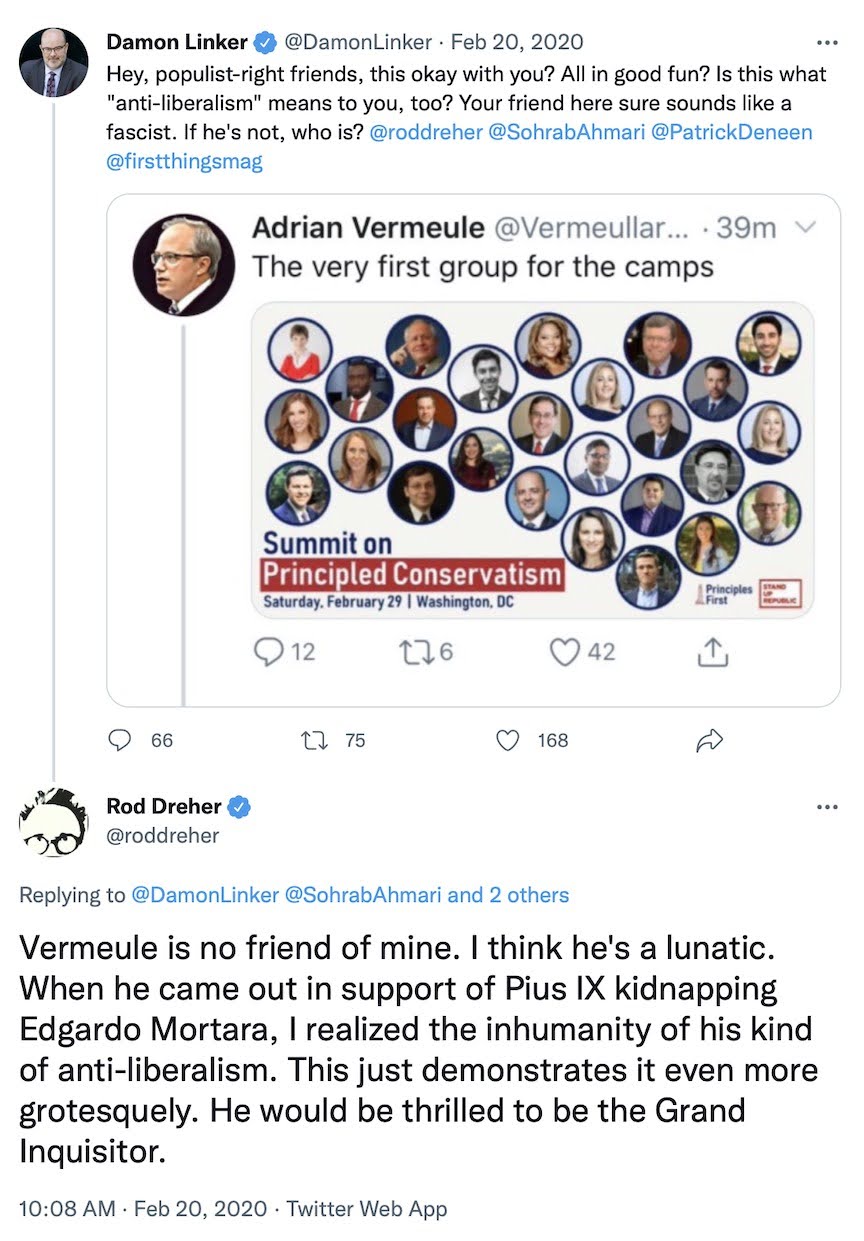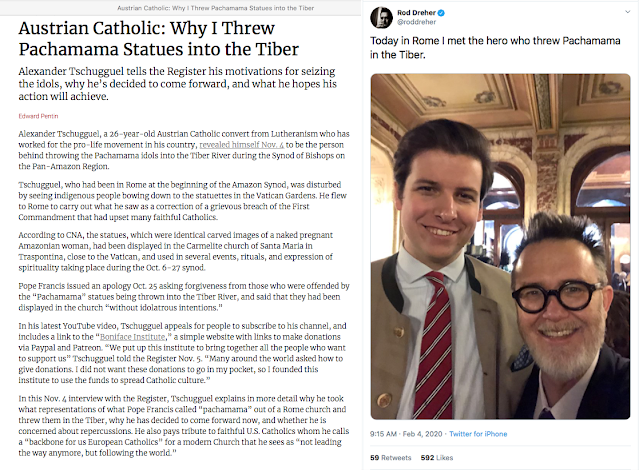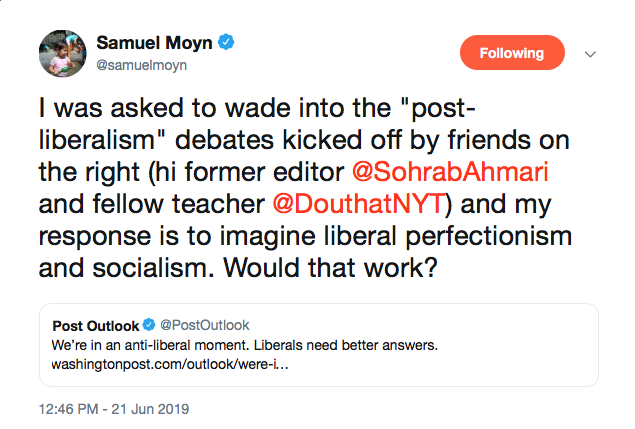Leiter links to Adolph Reed again.
Reed can't help but moralize; he still has fantasies of leading change. And he publishes on a webpage named after Robert Smithson that has Michael Fried on the editorial board. Smithson would be amused. I'm not.
I had an exchange with Fried a year or so ago, with no direct connection to this. But I sent him another one last night. I think he understands me now. Reed might as well.
This essay is a sketch, an attempt to study the ways that photography occupied Conceptual artists, the ways that photography decisively realized itself as a modernist art in the experiments of the 1960s and 1970s. Conceptual art played an important role in the transformation of the terms and conditions within which established photog raphy defined itself and its relationships with other arts, a transformation which established photography as an institutionalized modernist form evolving explicitly through the dynamics of its auto-critique.
Photography's implication with modernist painting and sculpture was not, of course, developed in the 1960s; it was central to the work and discourse of the art of the 1920s. But, for the sixties generation, art photography remained too comfortably rooted in the pictorial traditions of modern art; it had an irritatingly serene, marginal existence, a way of holding itself at a distance from the intellectual drama of avant-gardism while claiming a prominent, even definitive place within it. The younger artists wanted to disturb that, to uproot and radicalize the medium, and they did so with the most sophisticated means they had in hand at the time, the auto-critique of art identified with the tradition of the avant-garde. Their approach implied that photography had not yet become "avant-garde" in 1960 or 1965, despite the epithets being casually applied to it. It had not yet accomplished the preliminary autodethronement, or deconstruction, which the other arts had established as fundamental to their development and their amour-propre.
Through that auto-critique, painting and sculpture had moved away from the practice of depiction, which had historically been the foundation of their social and aesthetic value. Although we may no longer accept the claim that abstract art had gone "beyond" representation or depiction, it is certain that such developments added something new to the corpus of possible artistic forms in Western culture. In the first half of the 1 960s, Minimalism was decisive in bringing back into sharp focus, for the first time since the 1930s, the general problem of how a work of art could validate itself as an object among all other objects in the world. Under the regime of depiction, that is, in the history of Western art before 1910, a work of art was an object whose validity as art was constituted by its being, or bearing, a depiction. In the process of developing alternative proposals for art "beyond" depiction, art had to reply to the suspicion that, without their depictive, or representational function, art objects were art in name only, not in body, form, or function. I Art projected itself forward bearing only its glamorous traditional name, thereby enter ing a troubled phase of restless searching for an alternative ground of validity. This phase continues, and must continue.
Photography cannot find alternatives to depiction, as could the other fine arts. It is in the physical nature of the medium to depict things. In order to participate in the kind of reflexivity made mandatory for modernist art, photography can put into play only its own necessary condition of being a depiction-which-constitutes an-object.
In its attempts to make visible this condition, Conceptual art hoped to reconnect the medium to the world in a new, fresh way, beyond the worn-out criteria for photography as sheer picture-making. Several important directions emerged in this process. In this essay I will examine only two. The first involves the rethinking and "refunctioning" of reportage, the dominant type of art-photography as it existed at the beginning of the 1960s. The second is related to the first, and to a certain extent emerges from it. This is the issue of the de skilling and re-skilling of the artist in a con text defined by the culture industry, and made controversial by aspects of Pop art.
Wall
Through that auto-critique, painting and sculpture had moved away from the practice of depiction, which had historically been the foundation of their social and aesthetic value.
Clement Greenberg
The essence of Modernism lies, as I see it, in the use of characteristic methods of a discipline to criticize the discipline itself, not in order to subvert it but in order to entrench it more firmly in its area of competence.
Bullshit in both cases. The question is why that bullshit came to be.
repeats: T.J. Clark on Pollock and Flaubert. I'm adding highlights this time.
Farai un vers de dreit nien:
non er de mi ni d'autra gen,
non er d'amor ni de joven,
ni de ren au,
qu'enans fo trobatz en durmen,
sus un chivau.
(I shall make a poem out of [about] nothing at all:/it will not speak of me or others,/of love or youth, or of anything else,/for it was composed while I was asleep/riding on horseback.)
William IX of Aquitaine
Once Upon a Time. When I first came across the lines by the duke of Aquitaine some years ago, naturally I imagined them in Jackson Pollock’s mouth. They put me in mind of modernism; or of one moment of modernism which I realized I had been trying (and failing) to get in focus ever since I had read Harmonium or looked at Le Bonheur de vivre. Two things were clarified. Not just that modern artists often turned away from the detail of the world in order to revel in the work of art's "essential gaudiness," but that the turning away was very often associated with a class attitude or style not unlike Duke William's, or, at least, an attempt to mimic that style - its coldness, brightness. lordliness, and nonchalance. Its "balance, largeness, precision, enlightenment, contempt for nature in all its particularity."' Its pessimism of strength.
You might expect such an effort at aristocratic world-weariness on the part of bourgeois and even petty-bourgeois artists, operating in the nineteenth and twentieth centuries not the eleventh and twelfth, to bear some strange fruit.
Largeness and lordliness, after all, were not likely to be these artists' forte. Take the novelist Gustave Flaubert, for (central) example, at the beginning of work on Madame Bovary in 1852: already chafing at the he bit of reference that seemed to come with the form he had chosen and dreaming of "a book a about nothing, a book dependent on nothing external, which would he held together by the internal strength of its style ... a book which would have almost no subject or at least where the subject would be almost invisible, if such a thing is possible.” What strikes me as truly strange in Flaubert's case is not so much the project he outlined for himself - though as an ambition for a novel rather than a sestina or a set of haiku it has its own pathos – as the distance between the book he imagined and the one he actually wrote. No book has ever been fuller than Madame Bovary of the everything external which is the bourgeois world. Fuller in its heart of hearts, I mean; fuller in its substance; in the weight it gives to words themselves. It is as if the more intense a bourgeois artist's wish to dispense with externals and visibilities, the stronger will be their hold an the work's pace, structure, and sense of its own objectivity. Or maybe we could say that what brings on the word "bourgeois" at all as a proper description of Madame Bovary is exactly the deadlock within it between a language so fine and cold that it hopes to annihilate the emotions it describes as it describes them, and an absolute subjugation to those emotions and the world of longing they conjure up. A deep sentimentality, not relieved but exacerbated by a further (ultimate) sentimentality about language – call it belief in the arbitrariness of the sign.
Clicking through the links you'll find the quotes below
Greenberg
One and the same civilization produces simultaneously two such different things as a poem by T. S. Eliot and a Tin Pan Alley song, or a painting by Braque and a Saturday Evening Post cover. All four are on the order of culture, and ostensibly, parts of the same culture and products of the same society.
T.S. Eliot:
Marie Lloyd was the greatest music-hall artist in England: she was also the most popular. And popularity in her case was not merely evidence of her accomplishment; it was something more than success. It is evidence of the extent to which she represented and expressed that part of the English nation which has perhaps the greatest vitality and interest.
Wall is, or was, tempted by the delusions Flaubert claimed for his art, and that Greenberg and Bourdieu valued, and that Fried still does. But watch him here.
Look at the editorial board for Nonsite, almost all in literature and art history, and you can guess their interests. I won't quote Bourdieu—click the links. His arguments are laughable.
On my way home. On the train from Boston to Penn Station. Looking out the window thinking about Pissarro and Anarchism. Passing through a suburban industrial landscape Jeff Wall’s images of Vancouver come to mind, and I have a thought that I regret that now we are able to blame ourselves for everything. Our mistakes are now more deadly than God’s. We are becoming used to the bureaucratization of disaster. But those problems which fall into the category ‘what is to be done’ are the preoccupation of only a few, and if most people are no closer to controlling their own destiny, they are also no more interested in it than they ever were. It makes no difference to them if a few men put themselves in God’s place. Their passivity is their freedom. And that freedom will never be taken away.










